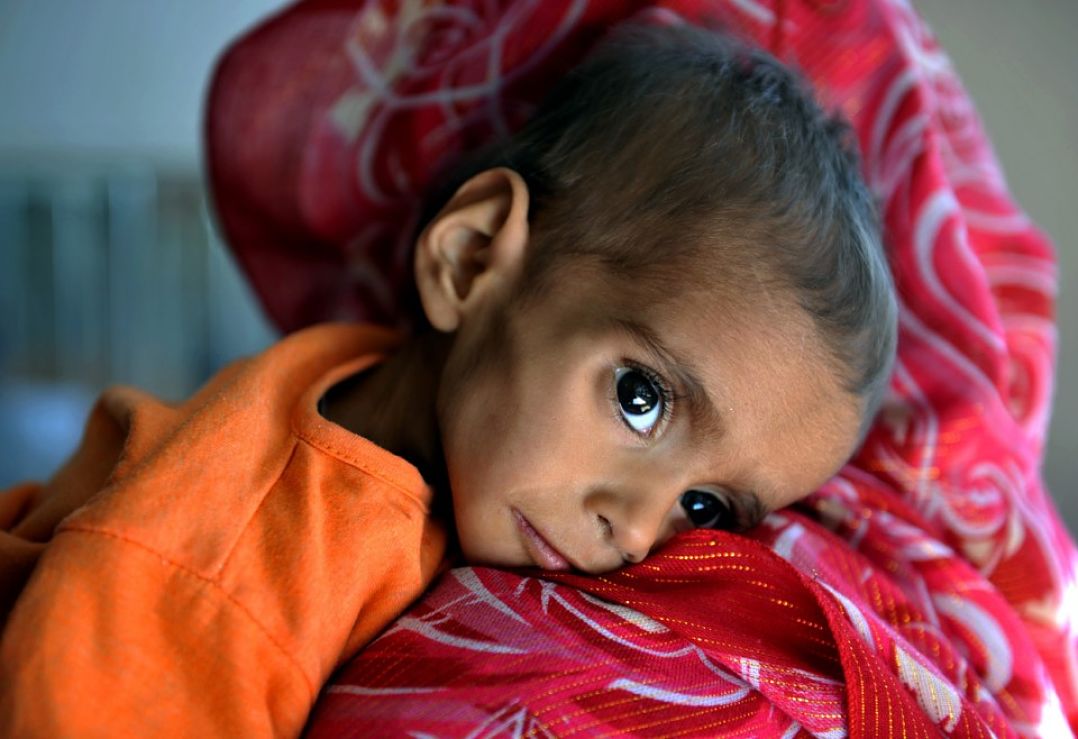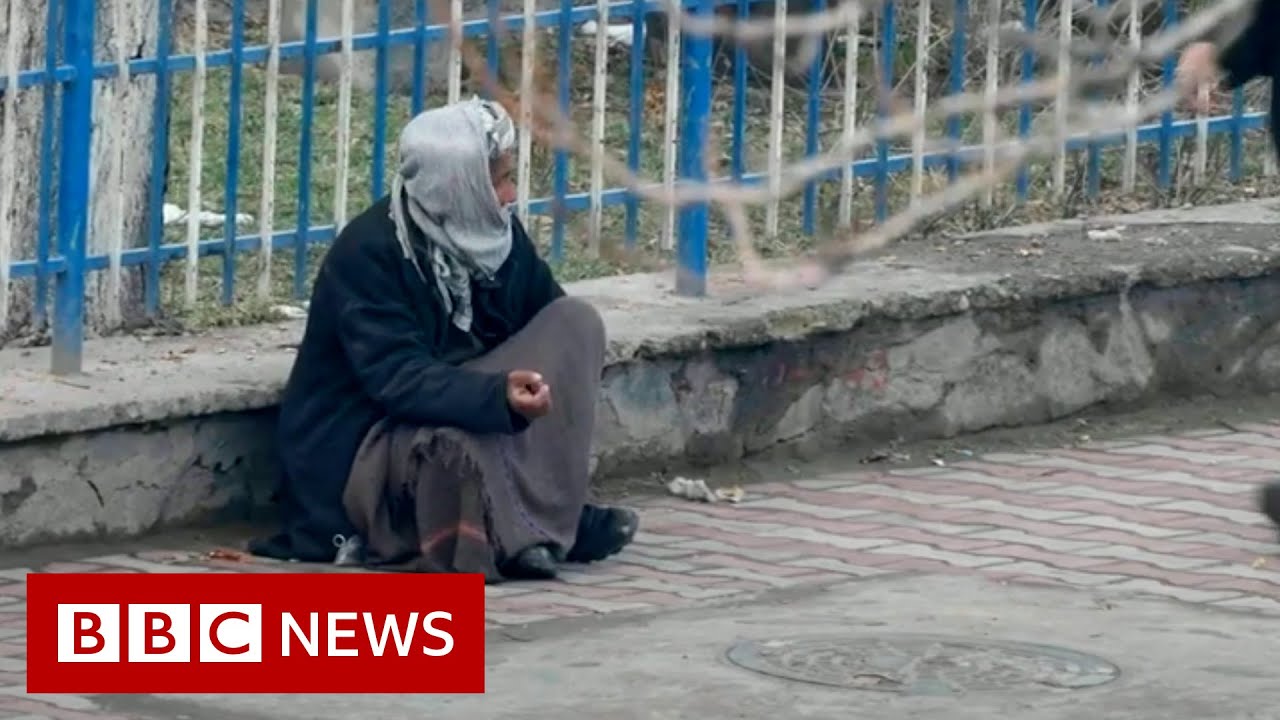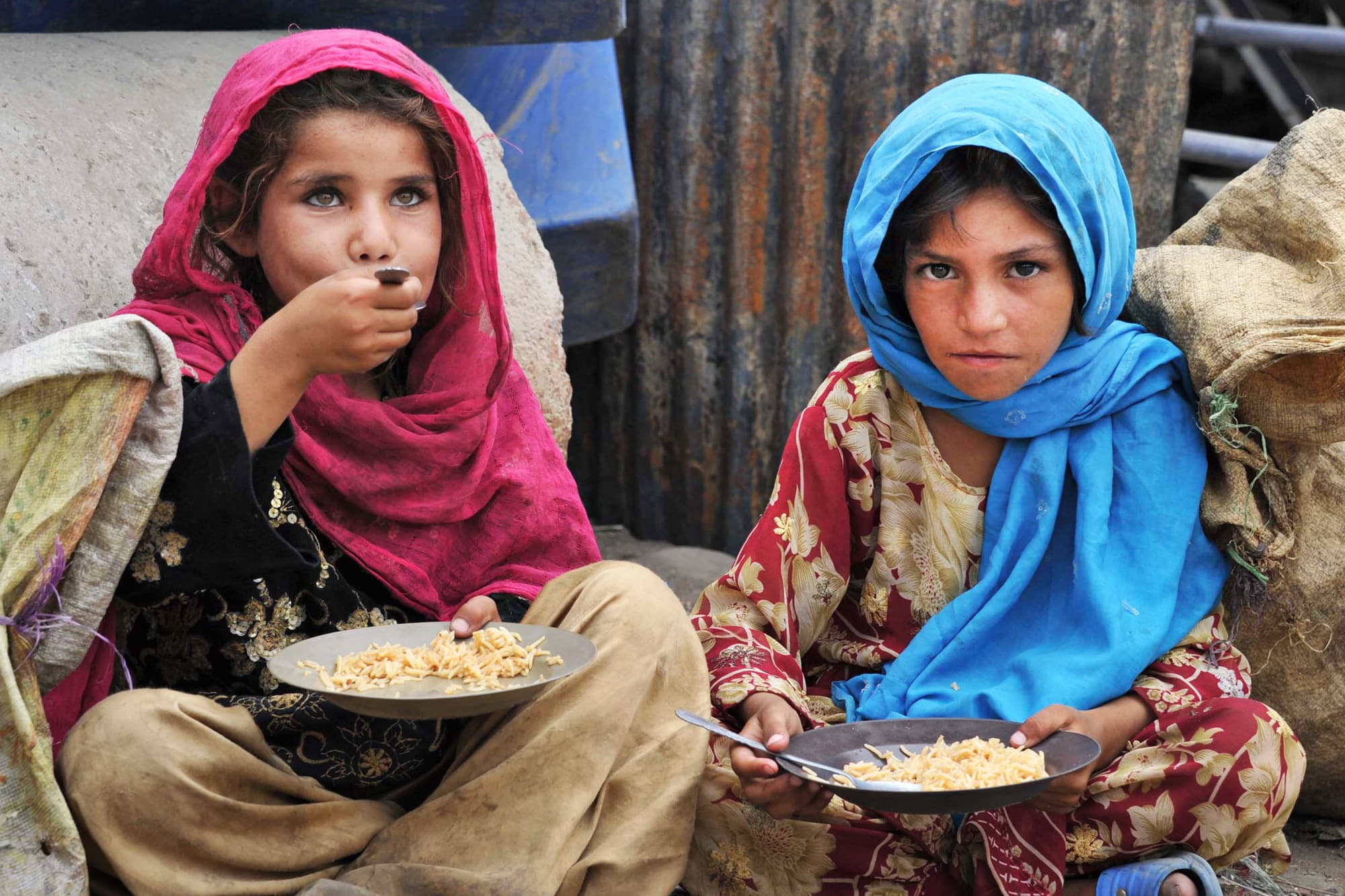Families In Afghanistan Drug Their Hungry Children To Sleep
A shocking report has brought to light the plight of the starving citizens of Afghanistan under Taliban rule. Families in Afghanistan drug their hungry children to help them sleep, and others have sold their daughters and organs to survive.
Author:Elisa MuellerReviewer:Camilo WoodNov 24, 202220.1K Shares531.1K Views

A shocking report has brought to light the plight of the starving citizens of Afghanistan under Taliban rule. Families in Afghanistan drug their hungry childrento help them sleep, and others have sold their daughters and organs to survive.
Millions of people are one step away from famine in the second winter since the Taliban took power and foreign funds were frozen. When asked if sedating the children was a common practice, nearly a dozen men from the settlement answered in the affirmative.
The State Of Hunger In Afghanistan

Millions at risk of starvation in Afghanistan - BBC News
Humanitarian needs in Afghanistan have skyrocketed as a result of decades of conflict, natural disasters, extreme poverty, drought, and the COVID-19 pandemic. More than half of the population is currently experiencing a food crisis as a result of the country's deep economic and humanitarian crisis since the Taliban took power.
Abdul Wahab, one of the citizens, said:
“„Our children keep crying, and they don't sleep. We have no food, so we go to the pharmacy, get tablets and give them to our children so that they feel drowsy.- Abdul Wahab
Abdul lives in a settlement of thousands of small mud houses outside Herat, the country's third-largest city, with people who have been displaced or affected by the war.
Another man, Ghulam Hazrat, reached into his tunic pocket and pulled out a strip of tablets. They were alprazolam, which are tranquilizers commonly used to treat anxiety disorders. 5 alprazolam pills cost about the same as a loaf of bread. Ghulam has six children, the youngest of whom is one year old. "I give it to him," he added.
Foreign funds have been frozen in Afghanistan since the Taliban took over the country last August, with no international recognition for the new de-facto government, triggering an economic collapse that has left citizens unemployed. On rare occasions when they are able to find work, they earn approximately 100 Afghanis, which is slightly more than one US dollar.
Selling Of Internal Organs
A citizen sells his kidney to repay a loan for food. Another resident stated that he had a kidney removed three months ago. He stated, "There was no escape. I'd heard that a kidney could be sold at a nearby hospital. I went there and informed them of my intention. Some weeks later I got a phone call asking me to come to the hospital".
The man was paid approximately 270,000 Afghanis ($3,100) for his kidney, with the majority of the funds going toward repaying money he had borrowed to buy food for his family. "We don't eat the next night if we eat the night before. I feel like I'm only half a person now that I've sold my kidney. I'm feeling helpless. If things continue as they are, I believe I will die "He stated.
Daughters Are Being Sold
A young mother recalls selling her kidney seven months ago. They had to repay the debt incurred when borrowing money to purchase a flock of sheep. The animals died as a result of a flood a few years ago, and thus lost their source of income.
Hunger has shattered the dignity with which the people of this region have lived their lives. Hazratullah's daughter Nazia has been sold to marry a boy from a family in Kandahar's southern province. She will be sent away when she reaches the age of 14.
Her father has received two payments so far. "I spent the majority of it on food and some on medicine for my younger son. Take a look at him; he's malnourished "Hazratullah stated, the startling rise in malnutrition rates demonstrates the impact that hunger is already having on Afghan children under the age of five.
Conclusion
In response to a question about what the Taliban provincial government in Herat is doing to deal with the famine, Hamedullah Motawakil, the representative of the Taliban said that the situation is a result of international sanctions on Afghanistan and the freezing of Afghan assets. As per him, the government is attempting to determine how many people require assistance.
Hunger is a slow and silent killer, and its consequences are not always obvious. Away from the spotlight, the scope of the Afghan crisis may never be fully revealed, because no one is counting.

Elisa Mueller
Author
Elisa Mueller, a Kansas City native, grew up surrounded by the wonders of books and movies, inspired by her parents' passion for education and film.
She earned bachelor's degrees in English and Journalism from the University of Kansas before moving to New York City, where she spent a decade at Entertainment Weekly, visiting film sets worldwide.
With over 8 years in the entertainment industry, Elisa is a seasoned journalist and media analyst, holding a degree in Journalism from NYU. Her insightful critiques have been featured in prestigious publications, cementing her reputation for accuracy and depth.
Outside of work, she enjoys attending film festivals, painting, writing fiction, and studying numerology.

Camilo Wood
Reviewer
Camilo Wood has over two decades of experience as a writer and journalist, specializing in finance and economics. With a degree in Economics and a background in financial research and analysis, Camilo brings a wealth of knowledge and expertise to his writing.
Throughout his career, Camilo has contributed to numerous publications, covering a wide range of topics such as global economic trends, investment strategies, and market analysis. His articles are recognized for their insightful analysis and clear explanations, making complex financial concepts accessible to readers.
Camilo's experience includes working in roles related to financial reporting, analysis, and commentary, allowing him to provide readers with accurate and trustworthy information. His dedication to journalistic integrity and commitment to delivering high-quality content make him a trusted voice in the fields of finance and journalism.
Latest Articles
Popular Articles
